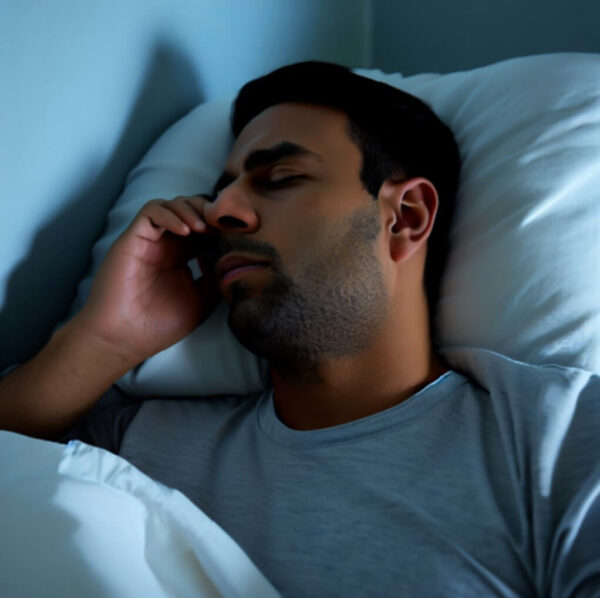Ah, the age-old sleep debate. Throughout history, sleep has mystified, enchanted, and sometimes, even eluded many of us. Unveiling the age-old sleep debate, one has to wonder if the often-touted ideal of 8 hours is a relic of times gone by. Why the magic number might not be 8 hours is a question that haunts today’s productivity-driven society, where burning the midnight oil is often seen as a badge of honor.
The Science Behind Sleep
The realm of sleep isn’t just about shutting our eyes and drifting into oblivion. It’s a meticulous symphony orchestrated by our brain and body. How the sleep cycle works can be likened to a dance. With each phase playing a pivotal role, our bodies rejuvenate, repair, and rebuild. Dive deeper and you encounter two distinct stages: REM and non-REM. Why do both matter? While REM stages are when we dream and process emotions, non-REM is equally imperative, involved in memory consolidation and physical renewal.
Historical Sleep Patterns
Tracing the chronicles of yore, one finds intriguing sleep patterns. How our ancestors slept wasn’t dictated by the stringent 9-5 schedules we now adhere to. Nature’s cadence – the rise and set of the sun – governed their sleep. And here’s a revelation: The myth of uninterrupted 8-hour sleep is, indeed, a relatively modern concept. Before electric lights, biphasic sleep, comprising two distinct segments, was the norm.
The Modern Lifestyle and Its Impact
Fast forward to our digitized epoch. Digital screens and blue light have become an inevitable part of our evenings. But is this a nightmare combo for our sleep? Blue light tampers with melatonin production, the sleep-inducing hormone, potentially curtailing our rest. Compounding this is the stress and its subtle toll on sleep quality. Financial worries, work pressures, or even global pandemics can keep us tossing and turning, even if we’re in bed for a full 8 hours.
Benefits of a Full 8 Hours
Dedicating a full 8 hours to Morpheus’s embrace isn’t without its merits. Memory and cognitive function boosts are noticeable after a solid night’s sleep. More than just feeling alert, the intricate neuronal connections in our brain are fortified. From a physiological perspective, physical health and its ties to deep sleep cannot be emphasized enough. From muscle recovery to immune system reinforcement, deep sleep is paramount. Lastly, our mental well-being and emotional balance hinge greatly on sleep, often acting as the panacea for anxiety and stress.
When 6 Hours Might Just Be Enough
While many are extolling the virtues of 8 hours, there exists a sect, the short sleepers, who appear to defy this norm. Who are they? Typically, they’re individuals who feel refreshed and invigorated on less than the conventional 8 hours. Exploring the genetic angle, there are indeed rare instances where certain genes make truncated sleep wholly sufficient.
The Dangers of Consistent Short Sleep
However, caution must prevail. Continual short sleep isn’t without perils. There’s a proven link between less sleep and chronic conditions like diabetes, heart disease, and obesity. Furthermore, mental health concerns and their unseen risks burgeon with sleep deprivation. A disconcerting question arises: Does less sleep equal a shorter life span? Research indeed hints at such an ominous correlation.
Quality Over Quantity
The crux isn’t just about clocking hours, but delving into the depths of sleep quality. Why 6 hours of deep sleep might beat 8 hours of interrupted rest is an area begging exploration. Embracing techniques to enhance sleep quality, from creating a serene sleep environment to mindfulness practices, can be transformative.
Adapting to Your Body’s Natural Rhythm
Sage advice often nudges us towards listening to our internal clock. Our circadian rhythm, a natural, internal process, dictates our sleep-wake cycle. By heeding its cues and adjusting habits for better, more natural sleep, one can find a harmonious balance between rest and wakefulness.
In the intricate tapestry of sleep, a one-size-fits-all approach is a misnomer. Personalizing sleep recommendations based on individual needs is crucial. Above all, embracing a balanced sleep routine for optimum health remains the golden rule, ensuring we’re not just living, but thriving.
TL;DR
Sleeping 6 hours might suffice for some due to genetic factors, but the traditional 8-hour recommendation has scientific and historical backing. Modern lifestyles, with digital screens and stress, impact our sleep quality. While 8 hours offer cognitive, physical, and mental benefits, consistent short sleep can lead to health risks. Quality of sleep often trumps quantity, and it’s essential to adapt to our body’s natural rhythms and personalize sleep habits for optimal health.






